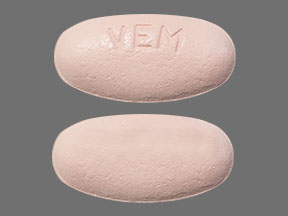Vemurafenib Interactions
There are 628 drugs known to interact with vemurafenib, along with 7 disease interactions, and 1 alcohol/food interaction. Of the total drug interactions, 231 are major, 376 are moderate, and 21 are minor.
- View all 628 medications that may interact with vemurafenib
- View vemurafenib alcohol/food interactions (1)
- View vemurafenib disease interactions (7)
Most frequently checked interactions
View interaction reports for vemurafenib and the medicines listed below.
- Abraxane (paclitaxel protein-bound)
- Activated Charcoal (charcoal)
- Adriamycin (doxorubicin)
- Aspirin Low Strength (aspirin)
- Avastin (bevacizumab)
- Casodex (bicalutamide)
- Co-trimoxazole (sulfamethoxazole / trimethoprim)
- Coenzyme Q10 (ubiquinone)
- Colace (docusate)
- Compazine (prochlorperazine)
- Copper (copper gluconate)
- Dextrose (glucose)
- Diltiazem Hydrochloride SR (diltiazem)
- Dulcolax Stool Softener (docusate)
- Fentanyl Transdermal System (fentanyl)
- L-Arginine (arginine)
- L-Carnitine (levocarnitine)
- L-Cysteine (cysteine)
- Lithium Carbonate ER (lithium)
- Lovenox (enoxaparin)
- Metoprolol Succinate ER (metoprolol)
- Metoprolol Tartrate (metoprolol)
- Paracetamol (acetaminophen)
- Valproate Sodium (valproic acid)
- Vitamin B1 (thiamine)
- Vitamin B12 (cyanocobalamin)
- Vitamin B6 (pyridoxine)
- Vitamin D3 (cholecalciferol)
- Vitamin K (phytonadione)
- Vitamin K2 (menaquinone)
Vemurafenib alcohol/food interactions
There is 1 alcohol/food interaction with vemurafenib.
Vemurafenib disease interactions
There are 7 disease interactions with vemurafenib which include:
- lung toxicity
- cutaneous malignancies
- dermatological reactions
- hepatic impairment
- QT prolongation
- renal impairment
- visual complications
More about vemurafenib
- vemurafenib consumer information
- Compare alternatives
- Reviews (4)
- Side effects
- Dosage information
- During pregnancy
- Drug class: multikinase inhibitors
- Breastfeeding
- En español
Related treatment guides
Drug Interaction Classification
| Highly clinically significant. Avoid combinations; the risk of the interaction outweighs the benefit. | |
| Moderately clinically significant. Usually avoid combinations; use it only under special circumstances. | |
| Minimally clinically significant. Minimize risk; assess risk and consider an alternative drug, take steps to circumvent the interaction risk and/or institute a monitoring plan. | |
| No interaction information available. |
See also:
Further information
Always consult your healthcare provider to ensure the information displayed on this page applies to your personal circumstances.


